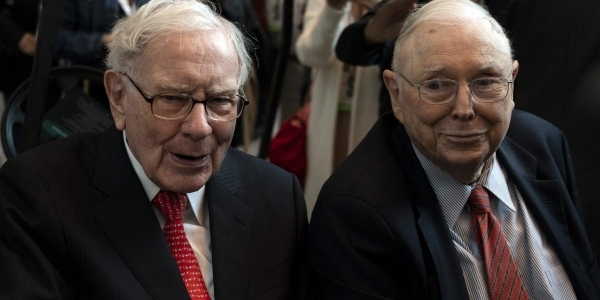
Charlie Munger is no fan of crypto. As vice chairman of the nearly $700 billion megaconglomerate Berkshire Hathaway, Munger has helped Warren Buffett make billions for investors since 1978 using a strict fundamentals-based approach to acquiring “high-quality businesses.”
And he believes cryptocurrencies represent the opposite strategy, arguing that the entire industry is “partly fraud and partly delusion.” In 2021, Munger famously called the world’s leading digital asset, Bitcoin, “rat poison,” and likened other cryptocurrencies to a type of “venereal disease.” Now he says the federal government should step in and ban the entire industry.
“A cryptocurrency is not a currency, not a commodity, and not a security,” Munger argued in a Wednesday Wall Street Journal op-ed. “Instead, it’s a gambling contract with a nearly 100% edge for the house… Obviously the U.S. should now enact a new federal law that prevents this from happening.”
Munge said that cryptocurrency investors are being taken advantage of by promoters and founders, noting that the creators of new cryptocurrencies often receive coins for “almost nothing.”
“After which the public buys in at much higher prices without fully understanding the pre-dilution in favor of the promoter,” he claimed, calling it an example of “wild and woolly capitalism.”
Munger said the U.S. should follow the example of China—which famously banned cryptocurrencies in 2021—and pass laws that prevent both crypto trading and the formation of new cryptocurrencies.
“What should the U.S. do after a ban of cryptocurrencies is in place?” Munger went on to say. “Well, one more action might make sense: Thank the Chinese communist leader for his splendid example of uncommon sense.”
Munger said that China’s action—which he argues was undertaken because Chinese authorities concluded that cryptocurrencies “provide more harm than benefit”—is one of two key precedents that provide evidence of the potential benefits of banning crypto. But the second precedent Munger offered was an odd one for a man who has amassed a net worth of $2.3 billion largely through Berkshire Hathaway, which invests in public markets.
Munger pointed to England’s ban of public trading in new common stocks after the South Sea Bubble blew up in 1720 as an example of the benefits of cracking down on risky speculation from investors. The South Sea Bubble, which has been called the “the world’s first financial crash,” began in 1711, when The South Sea Company was founded by an act of parliament as a public-private partnership to help reduce the cost of England’s national debt.
Shares were sold to the public that offered a 6% interest rate, but the company’s slaving and trading operations didn’t earn what was originally promised. Despite the lack of earnings, a bubble developed in the company’s stock as investors rushed to profit from the high dividend. King George assumed leadership of the firm in 1718. But by 1720, shares of the South Sea Company collapsed, losing over 80% of their value.
Munger noted that a “horrible depression” followed, and the government quickly reacted.
“What the English Parliament did in its anguish when this crazy promotion blew up, was direct and simple: It banned all public trading in new common stocks and kept this ban in place for about 100 years,” he said. “And, in that 100 years, England made by far the biggest national contribution to the march of civilization as it led strongly in both the Enlightenment and the Industrial Revolution and, to boot, spawned off a promising little country called the United States.”






